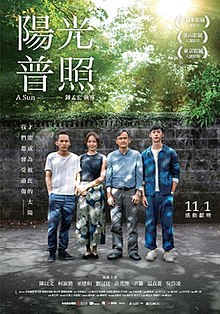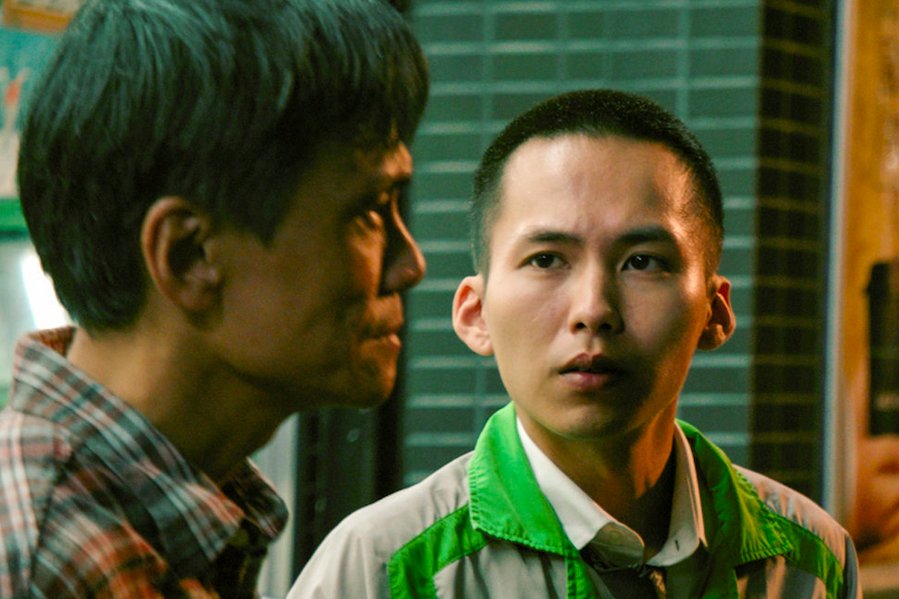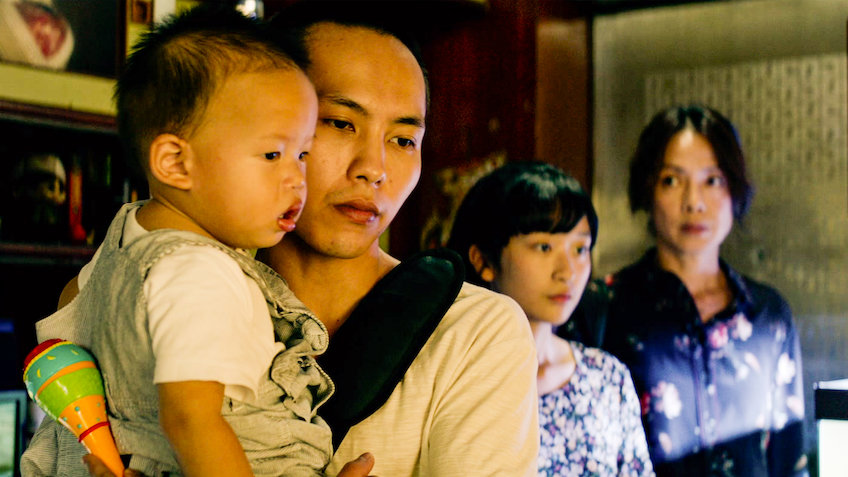By: Patrick Gratton
 They say that time is the eternal healer. It picks you up from your bootstraps and licks your wounds. Time is also the eternal grim reaper. It has the power to darken one’s heart, hope and inhibitions. Chung Mong-Hong’s A Sun, the big winner at last year’s Golden Horse Awards and Taiwan's submission for the 93rd Oscars, is a 150+ minute meditational piece on the effects of time and its role in expanding and tightening the human spirit.
They say that time is the eternal healer. It picks you up from your bootstraps and licks your wounds. Time is also the eternal grim reaper. It has the power to darken one’s heart, hope and inhibitions. Chung Mong-Hong’s A Sun, the big winner at last year’s Golden Horse Awards and Taiwan's submission for the 93rd Oscars, is a 150+ minute meditational piece on the effects of time and its role in expanding and tightening the human spirit.
For a film with such a daunting running time, A Sun begins with a bang! Teenager A-Ho (Wu Chien-to) races with fellow gang member on his motorcycle through the pouring rain to a local restaurant. A-Ho thinks this is a simple shakedown to intimidating a rival of theirs. But the gang amputates the rival's hand with a machete (in the film's goriest moment). A-Ho’s father A-Wan (Chien Yi-wen) advocates for a guilty sentence during his son’s trial. When questioned by his wife about why he’s so apathetic towards their son, A-Wan replies that he’s simply giving him a chance to repent while spending time behind bars...
See, A-Ho is the Chen family’s black sheep whose med school-bound brother A-Hao (Xu Guang-han) is the apple of his parents’ eyes. To make matters worse, soon after A-ho’s incarceration, the Chen family find A-Won’s secret girlfriend on their doorstep, revealing that she’s carrying their unborn grandchild. The disgruntled patriarch wants none of it, returning to his norm and focusing on his job as a driving instructor, while his wife hires their soon to be daughter-in-law as a beautician’s assistant.

For the remainder of the film, A Sun adopts a more leisurely narrative pace that’s equally slice-of-life storytelling and Shakespearean tragedy. Early on in the movie, Mr. Chen presents A-Hao with a series of journals with the engraving, “Seize the Day. Decide Your Path”. A Sun is undoubtedly a story of paths, constantly ebbing and flowing, comparing and contrasting the ripples in time that define a family falling apart and grieving as one. It’s a film about two brothers on different life trajectories who share the same self-alienation. It’s about how one son’s failings and triumphs begets the other’s and how through a reversal of fortunes, golden boys and problem children are two sides of the same stifling coin.
There’s a grim poetry to Mong-hong’s storytelling, depicting the harshest of circumstances with the softest of blows. The film offers the briefest glimmers of light during darkness, as in a comical scene which shows A-Ho teaching math to his fellow detainees through the multiplications of grams of weed sold and the addition of stabbing wounds. When A-Ho finally gets released from prison, the detention center breaks out into cultural hymns. In the film’s most potent passage, A-Ho speaks eloquently about the titular sun’s effects. The sun is the fairest of things, he writes, sharing itself equally with all parts of the world. But when your world is thrown off its axle, what do you do? When the sun shines so brightly, when the shade has eluded you completely and all you can see is pain and despair, where do you stand?
Mr. Chan overcomes these existential crises by compounding and compartmentalizing his sorrow. It’s a testament to Chien’s versatile and volcanic performance that Mr. Chen stands as the film’s most complex character. Constantly evolving, showing new character shades from one scene to the next, Mr. Chen is simultaneously a mild-mannered savant teacher dealing with manic rage issues, while flailing helplessly trying to rediscover his former self. Sorrow stricken, he walks the city streets at night seeking redemption, mourning what was lost. As his wife, Ko is unfortunately relegated to a single register, the family’s nurturer mending fences and picking up the pieces. Ko holds her own despite her character’s limitations, economically filling every beat with wistful melancholy, always silently present.

It’s hard not to be awed by the sheer ambition of A Sun. Its delicate pacing in a daunting running time, the way it fragments its narrative, allocating whole strands to each of the family members, revising and leaving characters for large periods of time. Mong-Hong deliberately gives the audiences the story at its grandest scope, where a more humble telling would suffice. However, a film needs to warrant its length, and justify its ambitions. As a 2½ hour character study, A Sun comes up short when probing into the psyches of its characters. The film’s intricate story falls prey to the cracks in its foundations, with several arcs left truncated or abandoned. Mong-Hong hedges his bets and fumbles, withholding pivotal character motivations for long stretches of time.More egregiously, character arcs are left off screen only to be retold through flashback via narration, cheapening their impact. Not only do these mechanics muddy the film’s messaging, they dilute the fine performances and underserve the characters, who gradually become cyphers of their former selves.
A Sun is currently streaming on Netflix worldwide.